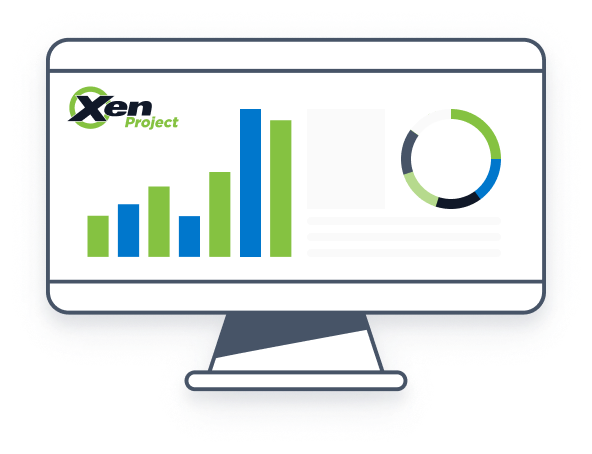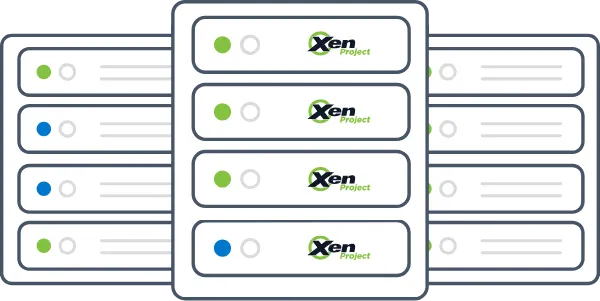Bring the power of open virtualization everywhere.
The Xen Project team is a global open source community that develops the Xen Project Hypervisor and its associated subprojects.
Our mission is to advance virtualization technology across a wide range of commercial and open-source domains.



Open-source
Wide variety of vendors and individuals opens new opportunities for the hypervisor and provides end-users with numerous places to find support.
Reliable
Over 10 million people use Xen with an ecosystem of more than 2000 commercially certified partners.
Flexible
Architecture enables vendors to create Xen-based products and services for servers, cloud, desktop, embedded, and security-first environments.
Support
Hypervisor supports multiple guest operating systems and cloud platforms.
Secure
Minimal attack surface with key security features like KCONFIG and Virtual Machine Introspection.
Modular
Architecture enables a degree of scalability, robustness, and security suitable for large, critical, and extremely secure environments.
A virtualization revolution
The Xen Project focuses on revolutionizing virtualization by providing a versatile and powerful hypervisor that addresses the evolving needs of diverse industries :
- Empower Innovation: Tailored virtualization to drive progress across various domains.
- Enhance Cloud Ecosystems: Elevate cloud capabilities with high-performing, reliable virtualization.
- Secure Critical Systems: Safeguard data and applications through industry-leading security.
- Revolutionize Embedded Technologies: Transform embedded and automotive sectors with mature, safe, secure solutions.
Embedded & Automotive
HVMI
Mirage OS
Unikraft
Windows PV Drivers
XAPI
XCP-ng
Latest news Read all news
Governed by Xen project members
Led by a dedicated community

About Xen Project

